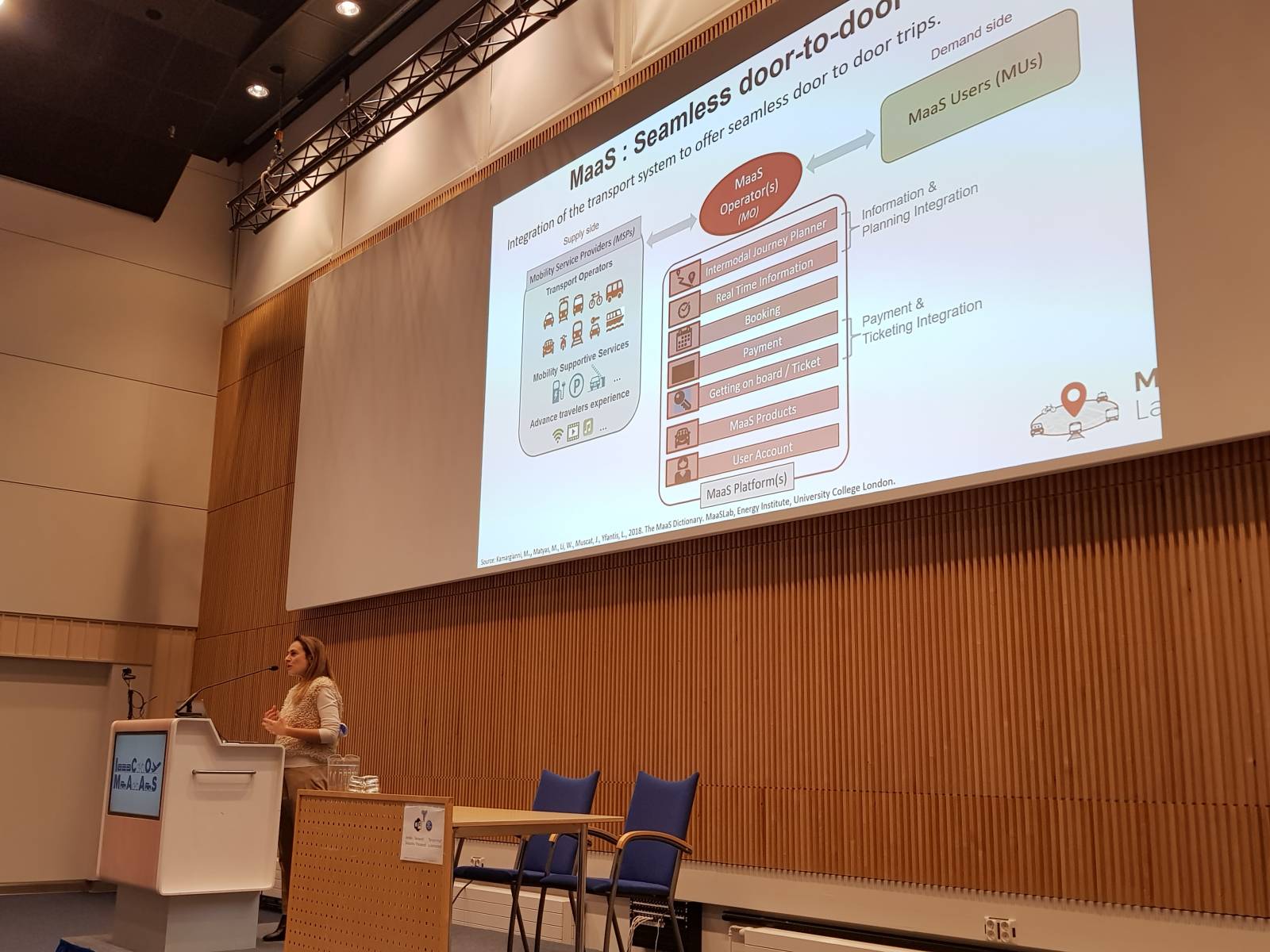The conference started and ended with discussion about whether MaaS is dead or not – did COVID-19 kill MaaS? Obviously, the time of COVID-19 pandemic has been challenging for mobility services and MaaS. The use of public transport decreased drastically when COVID-19 pandemic began, and since then, there has been varying recovery in different countries and cities towards the (new) normal, in which people might work more remotely and prefer private modes instead of public transport and shared modes. For MaaS, including both the business (companies, such as MaaS providers) and research (projects, pilots, etc.), COVID-19 and its aftermath have meant much adoption and abandoning some of the pre-set goals.
For MaaS pilots that run during the pandemics, such as those in Gothenburg, Sweden, results have been poor in terms of people who started to use the services. However, researchers found other very important factors that have resulted in that the great expectations set by the first MaaS trial which run in Gothenburg in 2012–2014 (the UbiGo pilot as a part of Go:Smart project), have not been realized in following MaaS pilots. As a critical issue, there has been too little effort to the S of MaaS, i.e., the service point of view, and in the projects and pilots, too much time and resources have been allocated to the development of the app instead of the service that the user is actually using. Furthermore, a basic problem with MaaS pilots has been that people are not willing to change their travel behaviour when they know the pilot will be ending in e.g., 6 months’ time. Hence, it is uncertain what can be learned from the pilots. The pilots have been lacking on integrated services that would be based on user needs, and as the users have got used to using apps that well designed and work well, they don’t accept poor user interface in the pilots, either.
MaaS studies have witnessed more systemic approaches and share more common ground in terms of the concepts and frameworks, i.e., MaaS research has matured. In terms of geographical coverage, ICoMaaS 2022 showed that MaaS research has been increasingly conducted outside of Europe. And even though the circumstances between different countries and regions vary, there are many universal findings from the different projects, and sharing these findings and discussing about those are important elements of conferences where people with different background come together, such as ICoMaaS. In ICoMaaS 2022, there were MaaS related presentations inter alia from Brazil, Chile, Japan and Australia, and presentations including larger and smaller cities as well as rural areas.
In addition to MaaS presentations, there were also presentations related to individual mobility services, such as car sharing and micromobility and e-scooters. These services can a part of the MaaS bundles, and from the user point of view, as well as the operator point of view, the importance of convenient trip chains means that the individual modes should also be considered in the MaaS context. ICoMaaS 2022 presentations and posters included e.g., following perspectives and topics:
- user-oriented studies, e.g., studies with stated preference (SP) method to study the interest towards different MaaS offerings, and studies with different user groups (such as employees commuting trips, students preferences, dwellers of housing associations)
- linking MaaS with other services than mobility services of passenger transport (tourism, events, freight transport and goods deliveries, e.g., by crowdsourcing)
- the role of different actors, and their perspectives, in MaaS-related collaboration
- sustainability of MaaS, and policies which can support it and decarbonisation.
Transport Research Centre Verne together with its ICoMaaS 2022 co-organisers, i.e., Tampere University and Ministry of Transport and Communications of Finland, would like to thank all participants, presenters and partners of ICoMaaS 2022.
Information related to ICoMaaS 2022 can be found from confernce webpages: https://events.tuni.fi/icomaas2022/

